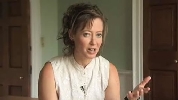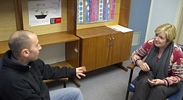|
|
 Acne (1,500) Acne (1,500)
 Addictions (1,500) Addictions (1,500)
 Advice (1,500) Advice (1,500)
 Allergies (1,092) Allergies (1,092)
 Alternative Medicine (1,500) Alternative Medicine (1,500)
 Anti Aging (1,500) Anti Aging (1,500)
 Breakup (1,500) Breakup (1,500)
 Cancer (1,499) Cancer (1,499)
 Dental Care (1,500) Dental Care (1,500)
 Disabilities (1,500) Disabilities (1,500)
 Divorce (1,500) Divorce (1,500)
 Elderly Care (1,498) Elderly Care (1,498)
 Goal Setting (1,500) Goal Setting (1,500)
 Hair Loss (1,500) Hair Loss (1,500)
 Health and Safety (1,497) Health and Safety (1,497)
 Hearing (1,500) Hearing (1,500)
 Law of Attraction (1,499) Law of Attraction (1,499)
 Marriage (1,500) Marriage (1,500)
 Medicine (1,497) Medicine (1,497)
 Meditation (1,499) Meditation (1,499)
 Men's Health (1,500) Men's Health (1,500)
 Mental Health (1,500) Mental Health (1,500)
 Motivational (1,500) Motivational (1,500)
 Nutrition (1,495) Nutrition (1,495)
 Personal Injury (1,499) Personal Injury (1,499)
 Plastic Surgeries (1,500) Plastic Surgeries (1,500)
 Pregnancy (1,496) Pregnancy (1,496)
 Psychology (1,500) Psychology (1,500)
 Public Speaking (1,500) Public Speaking (1,500)
 Quit Smoking (1,500) Quit Smoking (1,500)
 Religion (1,499) Religion (1,499)
 Self Help (1,500) Self Help (1,500)
 Skin Care (1,500) Skin Care (1,500)
 Sleep (1,500) Sleep (1,500)
 Stress Management (1,500) Stress Management (1,500)
 Teenagers (1,492) Teenagers (1,492)
 Time Management (1,500) Time Management (1,500)
 Weddings (1,500) Weddings (1,500)
 Wellness (1,500) Wellness (1,500)
 Women's Health (1,500) Women's Health (1,500)
 Women's Issues (1,500) Women's Issues (1,500)
|
Detecting skin cancer in its earliest stages not only significantly increases the patient’s chance of making a full recovery, it can also save the patient from having to go through aggressive treatments which can have severe side effects. The key to early detection is in finding skin irregularities and recognizing them as possible skin tumors, and promptly having them examined by a doctor. Some background information along with skin cancer photos can help you recognize what symptoms to look for.
Skin cancer is much more likely to be detected within its earliest stages of development if the patient has taken an active part in the process. You need to perform regular skin self-examinations, searching every part of your body for any irregularities with a basic idea of what you need to be looking for. If you find any suspicious growths, you can visit a doctor for professional evaluation.
The symptoms you need to look for vary in cases of melanoma or nonmelanoma skin cancer. You need to be especially attentive to the possibility of developing melanoma if you have certain risk factors, such as a higher than average number of nevi, or moles, or a high number of dysplastic nevi.
Dysplastic nevi are moles with an unusual appearance. They may be asymmetrical or particularly large. If you have any of these risk factors, you may want to ask a doctor for help in watching for an increase in the number of moles you have or any changes in their condition. After an initial evaluation, you may want to check regularly with a doctor. Even if you don’t have an unusually high number of moles or dysplastic nevi, you should still watch for new moles or changes in existing moles when you do your skin examination.
New dysplastic nevi should be seen by a doctor. If an existing mole changes in size, shape, or color, or if irritation or any color change occurs in the bordering skin, you should consult a doctor.
Moles are usually benign growths and most people have between 10 and 40 of them. They are formed of the same melanocyte cells which can turn into skin cancer, so moles do need to be watched carefully for any changes.
Nonmelanoma skin cancer generally affects the basal or squamous cells which make up the epidermis. These types of skin cancer can be less striking in appearance than melanoma, and are less severe, but early detection is still extremely important. While nonmelanoma skin cancer is most common on the face and other parts of the body which are exposed to sunlight, the entire body should be checked for symptoms.
Symptoms may appear as small lumps, which may be red or flesh-toned, or as sores or rashes which do not heal on their own. Any sores or rashes found during a skin examination should be watched carefully to see if they’re healing, and if they aren’t, this means a doctor should be consulted.
Skin cancer photos can be a useful aid in helping you determine what skin irregularities warrant a visit to a doctor, but should not be used as an exclusive guide for self-diagnosis. Do regular self-examinations, use the information provided in addition to photos, and see a doctor for any irregularity that you can’t identify, because even if it isn’t skin cancer, it may require medical attention.
|
|
|



